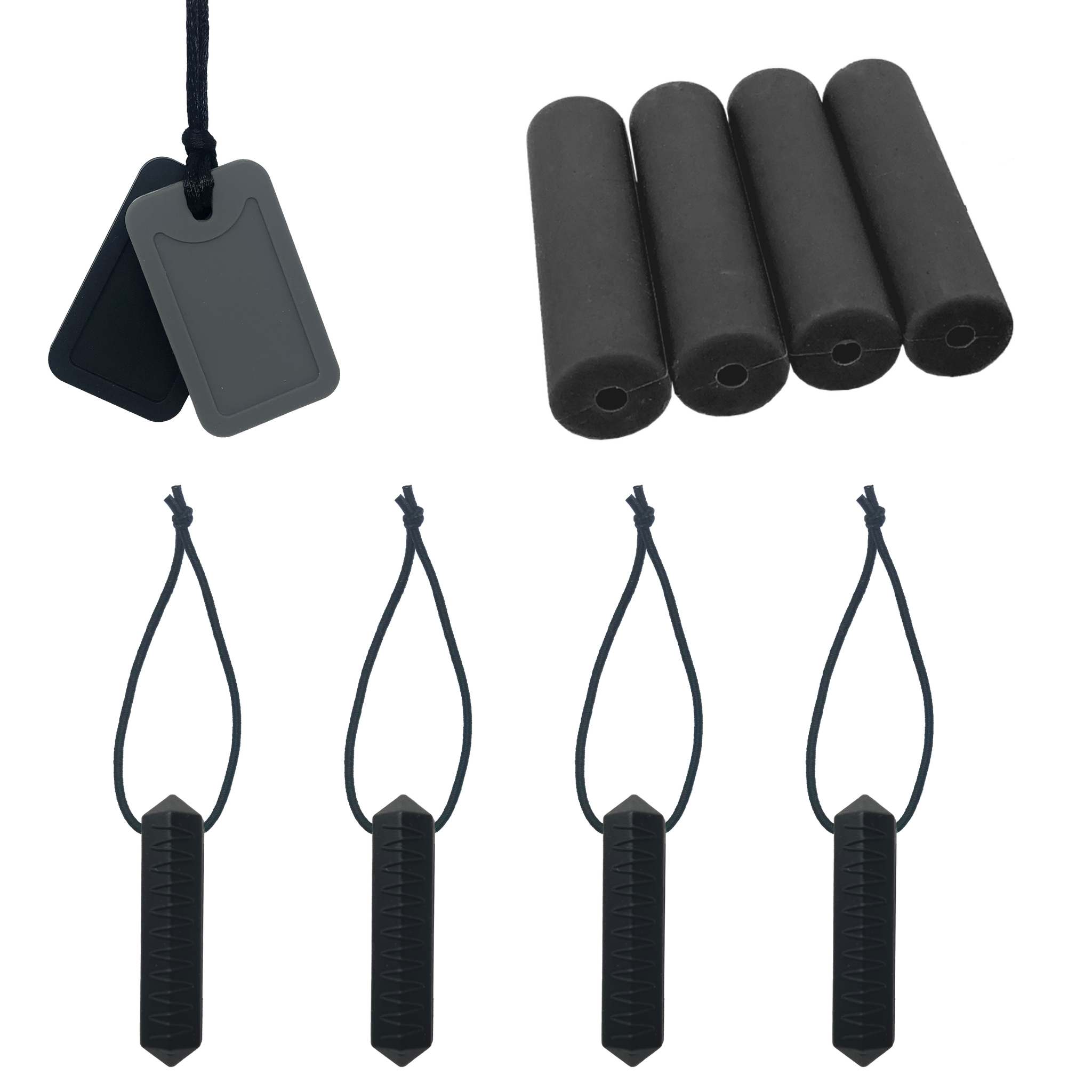
Your Guide to Discreet Chewy Jewellery – Featuring Our Most Subtle Designs!
Blog Post Outline: 1. Introduction: Why Discreet Chewy Jewellery Matters Chewy jewellery are purpose-made wearable items, made from food-grade silicone
You may or may not know how I got into Oojamabobs. The short answer is I started Oojamabobs after supporting a friend through their child’s autism diagnosis.
The longer answer starts back in 2015.
I had a couple of accidents within a few weeks of each other where on each occasion I sustained whiplash injuries and concussion symptoms. At the time I was working as an Assistant Clinical Psychologist and really excited about progressing along the pathway to becoming a Clinical Psychologist.
However, the accident threw a spanner in the works, to put it lightly. The second accident occurred before I had recovered from the first accident and left me with permanent issues; something like a minor brain injury.
These include sound sensitivity, sensory overload, executive dysfunction, word-finding difficulties, short-term memory issues, great difficulty learning new things, severe fatigue and too many more to remember and list.
Interestingly, I can now relate strongly to some of the experiences of my neurodiverse friends, particularly those with disorganised type ADHD.
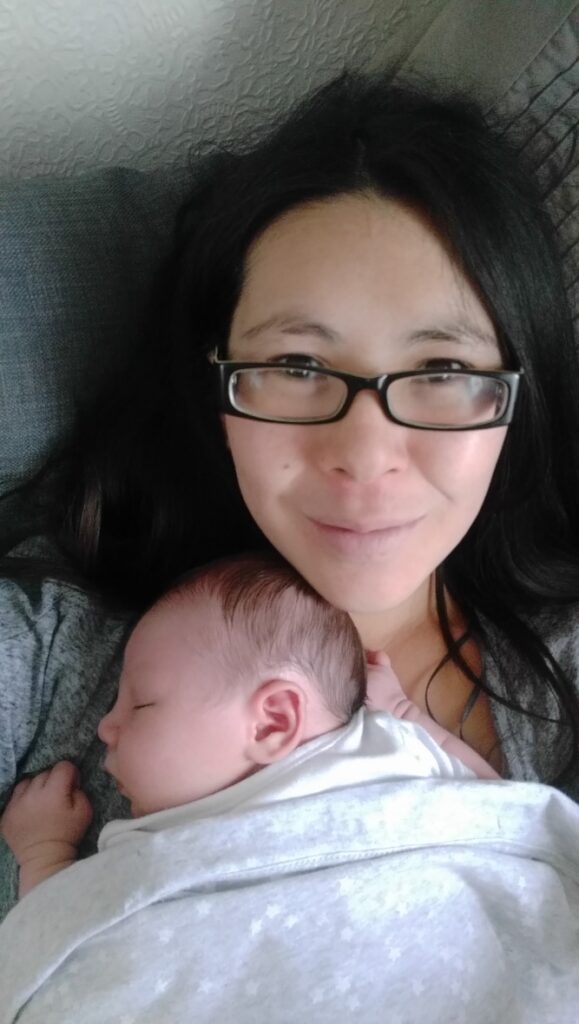
In 2017 my first child was born. I’ve always loved kids and I thought I’d be a great parent; but that was pre-accident.
The sensory overload of having children has been a huge shock to the system. I think all mothers find it really distressing when their babies cry, if only due to an inbuilt instinct to get to and protect our crying infants; but coupled with a strong noise sensitivity and my tendency to become easily overloaded and many times my crying baby made me LOSE MY MIND.
In our first house, our bathroom door had a bare patch on the bottom right panel, where the paint had worn off after frequent ‘breathers’ where I stepped away from my crying baby/toddler, shut myself in the bathroom and kicked the door on repeat.
I felt like I was always fighting between wanting to be the gentle parent who always responds promptly and calmly to my crying child and the visceral need to be FAR FAR AWAY from the screaming that felt like physical blows to my head.
The books said to step out, calm down and return. But I could not be calm while my baby was screaming and I also could not bear to leave them screaming alone. You couldn’t pay me to return to the baby years.
On a trip away to Wales as a family, one night my toddler would not go to sleep. Nothing worked. He screamed and screamed for what felt like hours, until I fully lost it and had a total meltdown.
I ended up punching a window in the caravan we were staying in and smashing the glass. I was so devastated by this loss of control and my actions, this was such a low point in my parenting journey.
This picture was taken the day after the incident and you can see by my expression how exhausted and low I was feeling. Looking at this image takes me right back there, it’s still painful to revisit this.
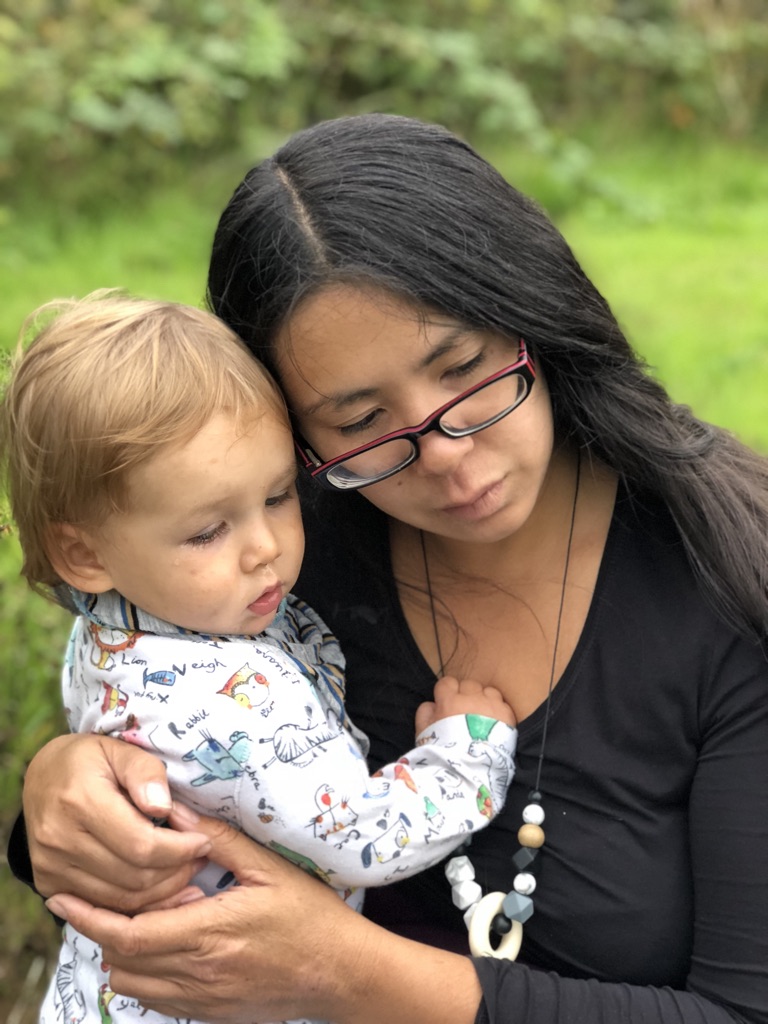
I’ve battled hard over the last 8 years to be a calmer parent, who responds with love and gentleness, who is not snappy and irritable. It is very much a work in progress.
There are days I am running on empty and I just do not have an ounce of patience. I am snappy, short and extremely irritable. I try to take deep breaths before I say anything. Inevitably I fail and the best I can manage is not FULLY losing it with my children.
On these days I take myself out of the room for a self-imposed time out. I hug my children in between the moments of irritation and apologise to them and explain why I’m so irritable. I tell them it’s not their fault. I wish sincerely and deeply to be a better, calmer parent to them and I hope they will survive my parenting.
There are days I can laugh and joke and smile with them; pretend to be a minecraft zombie; I can respond with patience to my stamping, angry 5 year old. I can explain calmly and kindly to my eldest why I need him not to talk to me while I am concentrating.
Over the years I have made constant small changes to try and be a calmer parent, whether those are rule changes, a new parenting method, small changes to my environment and so on, I feel like I have hit on a few things that have really worked for me.
I imagine all of you reading this have heard of a popular circular brand of ear plugs frequently plugged (see what I did there?) on social media. I went for a pair myself in a moment of desperation, looking for anything that might help me function better and be a calmer parent.
I have ones that are for sleep to block out as much sound as possible and I DID have the other pair which just reduce noise somewhat but you can still hear what’s going on. Unsurprisingly, I promptly lost them.
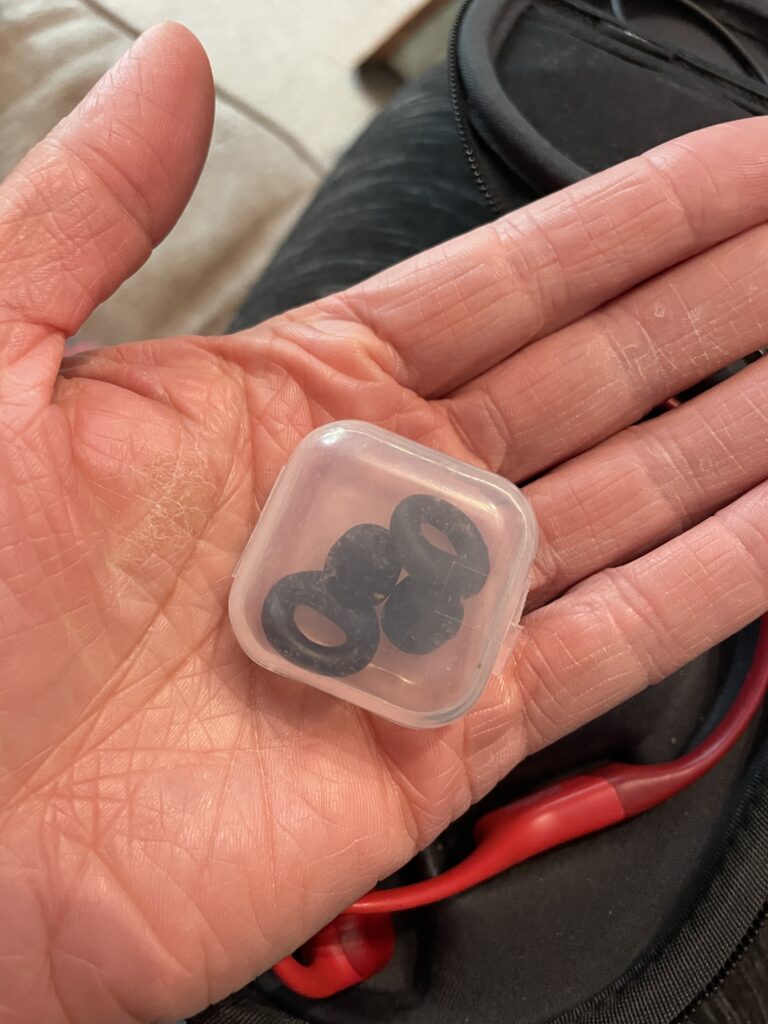
I have since purchased a bulk lot of generic silicone ear plugs which look identical to the above (and are substantially cheaper). I have a pair in my backpack, handbag, 2 pairs in the car, another pair in my headphones case and various others around the house.
Ear plugs have proved to be an extraordinarily useful tool for me. Especially when I’m stuck in a space with my screaming/crying child and the only thing I can do is reduce the noise input. They help me to attend to my child like the calm parent I want so badly to be, without being so easily overloaded.
I’m not amazing at realising I am getting overloaded and putting them in, but I think I’m getting a little better at this and my partner prompts me to put them in sometimes once I have started losing the plot.
I also explain to the kids, ‘I am feeling overloaded, I am going to put my ear plugs in now, I will speak to you when I am calmer’, in the hope they will develop a better understanding of my sensory needs and the sensory needs of themselves and others.
I think we all have different ways of coping with our frustrations, but my go-to is rage texting. I have a select few friends I know will not judge me for whatever words I use or the awful thoughts I share with them mid-meltdown.
I will usually remove myself from the room, shut myself in my bedroom and rage-text one of these friends. A long, angry, word-vomit, stream of consciousness about (for example) how unbelievably selfish my 5 year old is (yes I am fully aware of how ridiculous that sounds) and how terrible her behaviour has been, alongside my own horrible actions like me shouting or slamming doors.
I don’t usually need or want any kind of reply to these texts and when I’ve calmed down and read them back, I find they’re a combination of childish rants and somewhat self-indulgent pitying.
But getting them out into the ether really helps me and it definitely helps to ‘say’ the words to someone where it won’t cause any harm, because I never ever want to say those words to my child.
Shout out to my amazing friends who receive these texts and help me still feel like I am doing okay as a parent.
If you have a child who is a nightmare in the car, then this one is for you.
Since toddlerhood, my eldest has always been a pretty great traveller. He copes great with long journeys, reading, drawing, writing etc. Even at age 2 you could just hand him books, one after the other and he was happy and calm most of the time.
However, when he wasn’t, the stress levels were UNREAL. There were times I felt like I would rather crash the car than listen to the screaming for one more second. I think it was a combination of the maternal instinct to get to our crying baby instantly to protect them alongside the inability to actually do so, what with driving the car and all.
I would feel so incredibly distressed and panicked when my kids cried or screamed in the car and of course you also cannot get away from the sound.
My youngest has never been great in the car. She would get bored and/or cross very easily and start whingeing which would then escalate to shouting, crying and screaming. She would also throw stuff at her brother and kick/hit him. We’ve had many years of this and I’ve tried so many different things, but car pegs has been a game changer.
I did not invent this, it is a super simple parenting hack I saw online somewhere: Get a peg for each of your kids, paint them different colours/mark them in some way and clip them somewhere they can see them, usually the sun-visor.
Every x period of time (we do every half an hour on our long journeys), if your peg is still up, you get a treat!
Any unkind behaviour or unpleasant behaviour gets a warning and if it persists, the peg is taken down until the next time period is reached. Then it goes back up and they can try again.
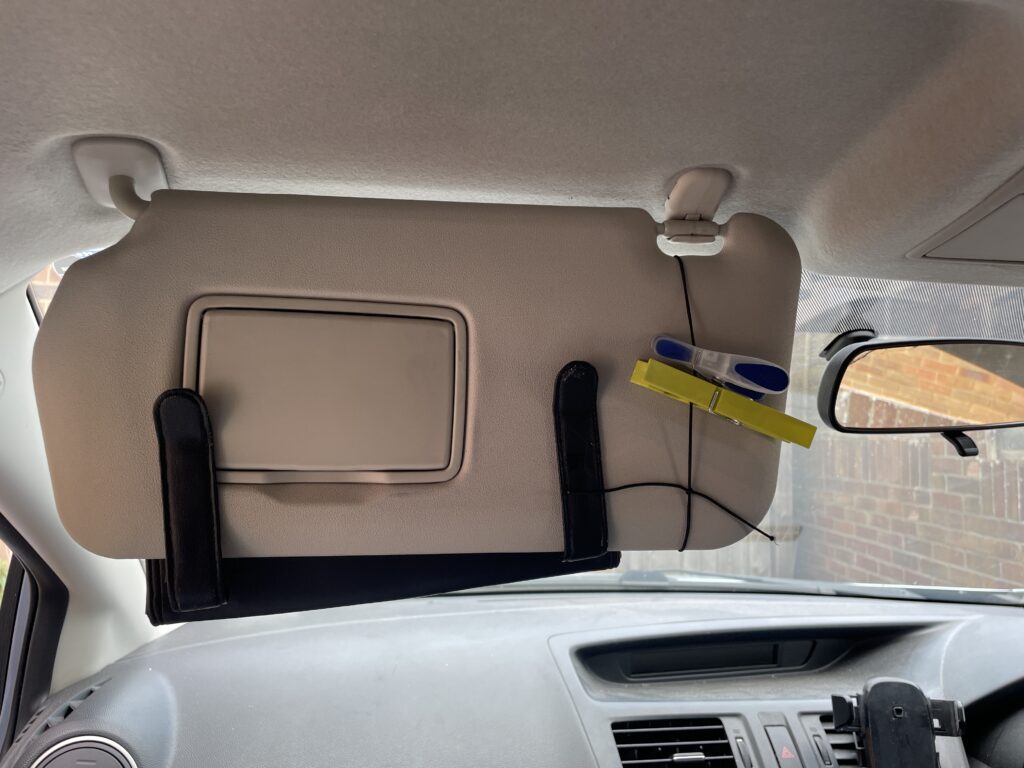
It’s that simple and it has revolutionised car journeys for us.
In the last month we have had 2 x 6 hour car journeys, a 3 hour car journey and a 2 hour car journey. My daughter had her peg taken down just ONCE and otherwise was beautifully behaved! I have been the model calmer parent on these journeys as a result.
Whether or not this is useful will depend on the type of child you have and/or their age. I know I can tell my eldest I am taking myself off to calm down and he is unlikely to follow me. But tell that to my youngest and it’s pretty much a guarantee she will follow me and do everything in her power to prevent that from happening.
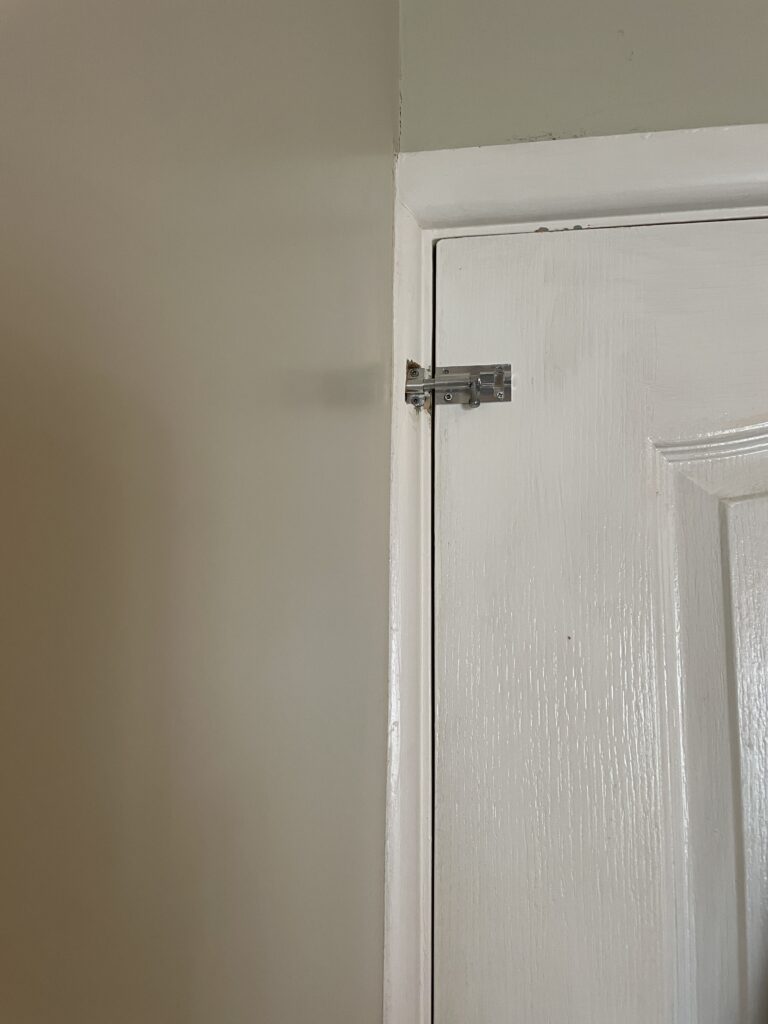
After a few awful meltdowns from me, I decided to put a small bolt on the top inside of our bedroom door. I can go in my bedroom to try and calm down when I feel myself getting overloaded, lock the door and know the kids can’t follow me.
It also seems to help that they KNOW they can’t follow me. Previously my daughter would continue trying to get in, hitting the door, shouting, screaming, kicking, while I sat on the other side holding it closed. But now as soon as she realises the door is locked, she gives up.
This one has been essential to my sanity and has meant I can return as a calmer parent a lot quicker than previously.
It feels somewhat silly to list this one, because it feels so obvious. But even knowing this now, I still don’t always do it when I should.
If I can feel myself becoming fatigued, overloaded or sometimes just because I know I should rest before say tackling bedtime, I will take myself off for a sensory break.
I think hearing this normalised by my lovely friend Purple Ella really helped me to start taking sensory breaks, whereas previously I wouldn’t have felt like I could justify them.

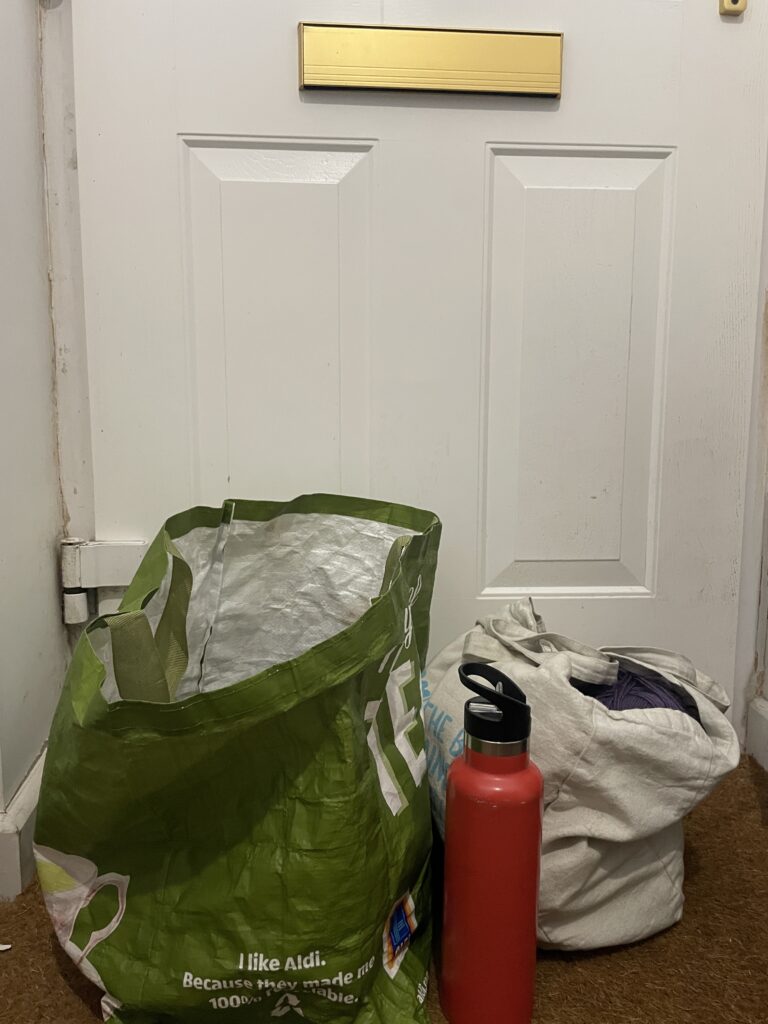
I’m not sure whether others can relate to this or not, but for me, if I have a to-do list regarding say a day trip the next day, the longer that list is (no matter how quick or small the tasks), the more stressed I feel. So, obviously, the shorter the list, the calmer I can be.
Realising this has led to me prepping as much as possible the day before. Lunches made, bags of stuff we need packed and ideally in the car (e.g. beach items), water bottles filled and by the door, routes checked, kids to have packed their day bags and have entertainment for the car (books to read, toys to play with). Snacks purchased and packed and so on and so on.
The shorter the to-do list, the calmer parent you will find!
I even do this with school days. Make sure kids reading records are complete, book bags packed with records, homework and books, water bottles ready by the door.
This one has only developed in the last year or so, as I’ve felt my kids are old enough to have some understanding of what has happened to me and as I have felt they are old enough to be considering the needs of others a bit more.
I explained to my kids I had an accident and my brain is damaged. Because of this, I have some problems that other people don’t have, like I get really tired and I find noise really difficult.
The analogy I have used with them is saying my brain is like a bucket. Every time someone asks me a question, or is really loud, or interrupts me when I’m saying something, my bucket gets a little more full. When it gets REALLY full, it overflows and that’s when I lose it and shout.
If I get quiet time to myself, my bucket will slowly empty by itself and return me to being a calmer parent. If I don’t get that quiet time, my bucket cannot start to empty.
I often get overloaded in the car, as I’m trying to focus, my kids speak really quietly so I’m straining to listen and have to keep asking them to repeat themselves loudly, which makes the kids annoyed and in turn makes me feel more stressed and so on.
But I’ve become really good at recognising this and telling the kids I’m getting stressed and grumpy and I need some quiet time to calm down. I tell them I am putting in my ear plugs and listening to a podcast and I need them to not speak to me for ten minutes. Once I’m calm, I take out my ear plugs and re-engage and this has worked really well for all of us.
With my eldest, I also request that he take some responsibility for his actions now. So if I have told him several times I am getting stressed and grumpy and can he please give me some space, but he continues to bother me whilst I am making dinner for example, I may then end up shouting.
When calm, I will apologise to him (I am very good at apologising) but I point out that I was very clear about how I was feeling and what might happen and he continued to push my buttons.
I recognise his ability to think about consequences is limited at best, but I also think he needs to try and learn to listen to others and take responsibility for his own contribution to what has happened.
This follows on nicely from the above. I ALWAYS apologise to my kids when I screw up. I always say sorry, I give them a cuddle and I explain why whatever just happened, happened.
There are many times when they have done nothing wrong at all and the issue is my tolerance level is at zero for whatever reason. I make sure they understand if I shouted or lost it, it was entirely my fault, I am sorry and I love them.
If they have contributed in some way, I will always apologise first (I am the adult here and the onus is on me to be the rational calm on, not them) for any wrong actions I took, such as shouting, being snappy or grumpy with them. But if they have played a part, then as well as apologising I will gently point that out and ask them to try and do differently next time.
An example: ‘I’m really sorry I shouted at you when you came in the kitchen. I am feeling really tired and grumpy. I asked you 3 times to please give me some space while I made dinner and I warned you that if you kept coming in, then I might shout.
I still should not have shouted at you, but next time I ask for space, please can you give me space and help me to stay calm?’
This is a new one too. Following a rather mega meltdown trying to leave the house for a day trip to Crealy, my partner and I separately came up with this…
The hustle and bustle of getting out the door is a major trigger for me. The dog is excited and is underfoot, his whining is a big issue for me.
The kids are hyper and excited, winding each other up, getting in the way, very busy NOT putting their shoes on, suddenly remembering another item they must take just as we’re FINALLY getting out the door and so on.
Coupled with the fact our house is very small and the hallway is crowded, plus I’m generally stressed with my mental to-do list, it’s become a well-known fact that Mama loses her shit on days we are going on holiday/on a day trip.
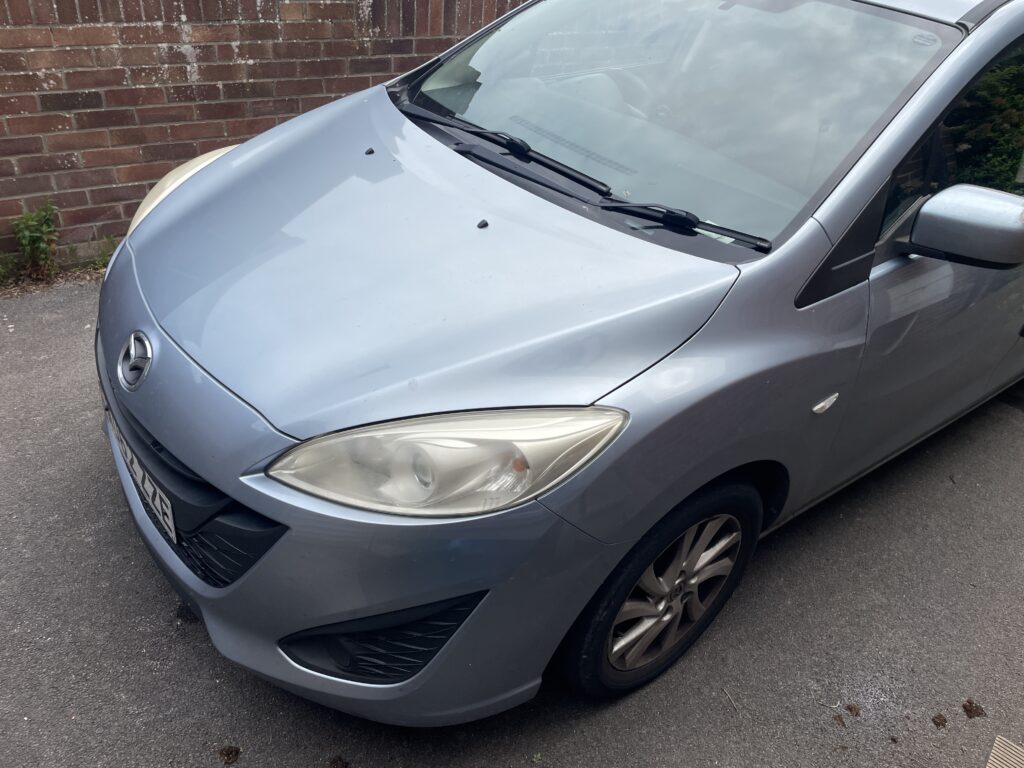
So now, I will get myself ready and I will go out to the car 20 minutes before we need to leave, put my ear plugs in and simply wait.
Flipping obvious right? Wrong. My brain does not connect ‘we’re running late’ with ‘what actually happens if we’re late?’ Just because I have planned to leave the house at 9am so we can arrive at the theme park for opening time, does not mean that we HAVE to leave at 9 nor does it actually matter if we don’t get there for this time.
This is a major one for me. In that moment I am fully in feeling mode, not logic mode.
I need reminding it DOES NOT MATTER if we don’t leave at the time I had mentally planned for. I have asked the kids AND my partner to remind me of this when I’m in full on stress mode and it has really helped me to be a calmer parent.
Summary
I am far from ‘fixed’. I don’t think I will ever be as zen as I would like to be. My own brand of acquired neurodiversity, coupled with neurodiverse kids, standard life and work stresses means trying to be a calmer parent will always be a work in progress for me. I’ve found a few things that work for us (for now) and hopefully this may help other parents in some small way.
As with my rage texting, it has helped somewhat to get this out into the ether and share it. It’s also helpful to look at this list and to remind myself that despite my many flaws, I am constantly trying my very best to be a calmer parent and I am always working on myself.
________
If you liked my blog post, please check out my other blog posts! You can also check out my tiktok to learn more about me and my business.

Blog Post Outline: 1. Introduction: Why Discreet Chewy Jewellery Matters Chewy jewellery are purpose-made wearable items, made from food-grade silicone
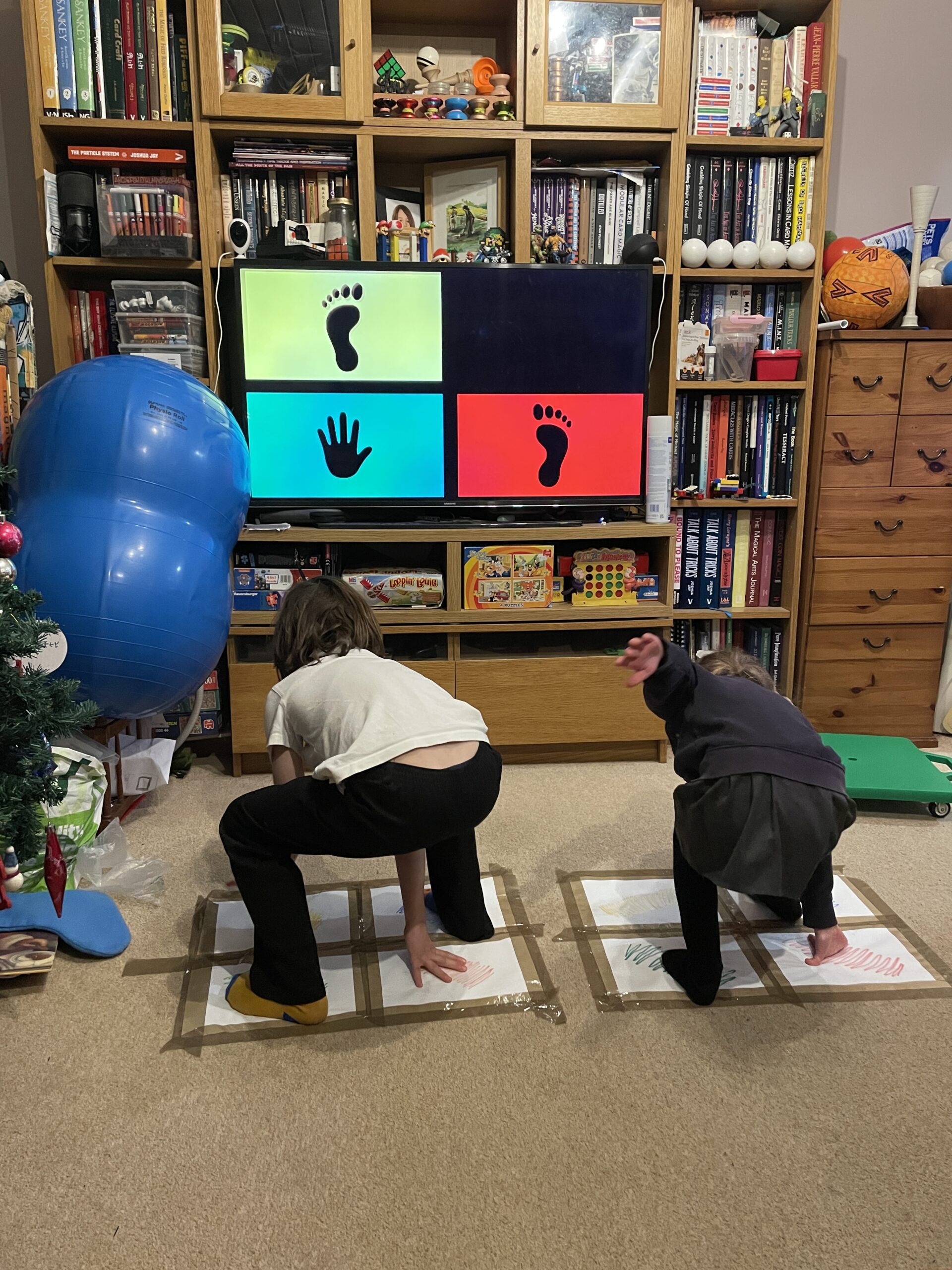
1. Introduction Screen time is one of the biggest parenting debates. It always seems to blow up the comments section,

A blog post answering the top 5 questions about chewy jewellery